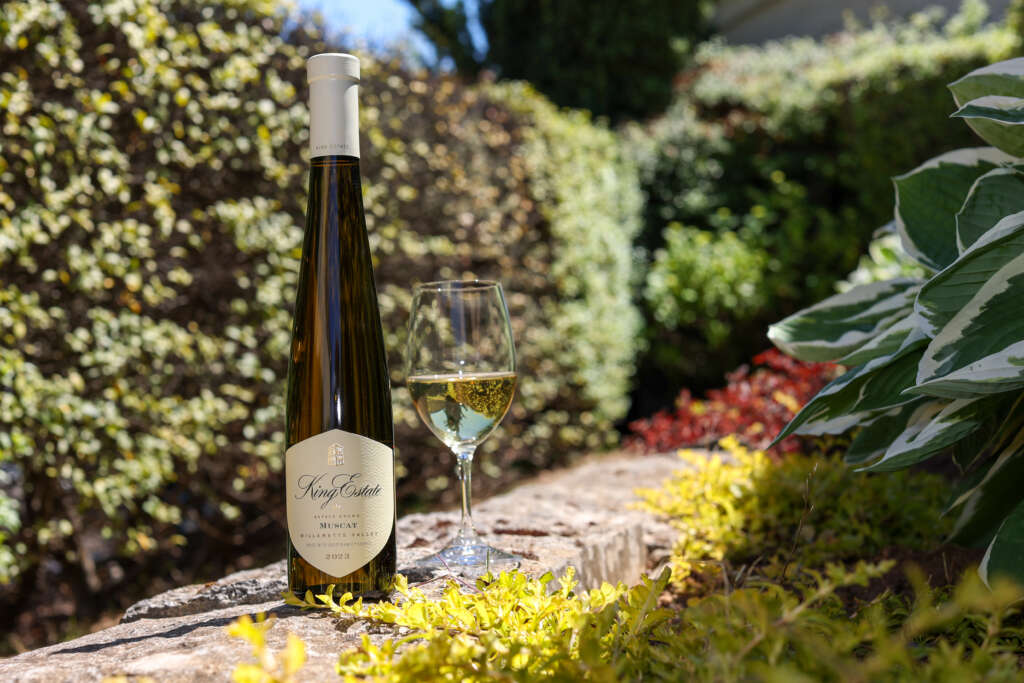You’ve been asking for it and here it is! We’re pleased to announce that our 2023 King Estate Muscat has just been released, available only in our Tasting Room, online or by special order. Only 200 cases of this exquisite semi-sweet wine were produced, made from 100% estate grown, Biodynamic® grapes. This is only the third Muscat King Estate has ever made; the last one was in 2018 and has been sold out. Muscat fans, your patience is finally being rewarded.
Most commonly considered a dessert wine, Muscat is surprisingly food friendly. With flavors of fruit, flowers and spice, the wine pairs well with sweet and savory foods alike: Asian food and curries; fruit and cheese boards; custards, cheesecake and panna cotta. Or it can stand in for dessert all by itself. Hint: The colder the wine is served, the less sweet it tastes.

“Muscat is different, starting with the grapes themselves,” observes Assistant Winemaker Leah Lyon. “The berries are huge – super fleshy and flavorful, almost like a table grape. The aromatic profile is distinctive, with floral, honeysuckle and jasmine coupled with tropical fruit.” King Estate has 1.5 acres of Muscat growing at 1,000 feet in elevation in Block 21A in the northern part of the vineyard. “It’s usually one of the early-picking grapes,” Leah says. “The fruit loses acid as it hangs and that can cause it to lose its crispy edge, making the wine feel a little flabby.”

In 2023 harvesting of Muscat began and ended on Sept. 15 when we brought in 7 tons of fruit. The winemaking process is different for Muscat than for other white wines. To reach the desired level of sweetness, sugar in the wine must be preserved rather than fermenting to dryness; that’s accomplished by lowering the temperature in the fermentation tank to 40 degrees from the usual 50 to 55 for whites. Chilling the wine before fermentation is complete slows the process down. Winemakers monitor the fermentation closely to make sure the yeast doesn’t convert too much sugar to alcohol. On the other hand, slowing fermentation down too much can stress the yeast and produce an off aroma. The Goldilocks goal is to strike the ideal balance between sugar, acidity and alcohol. The proof is in the bottle. Even if you think you don’t like sweeter wines, this Muscat might surprise you!
